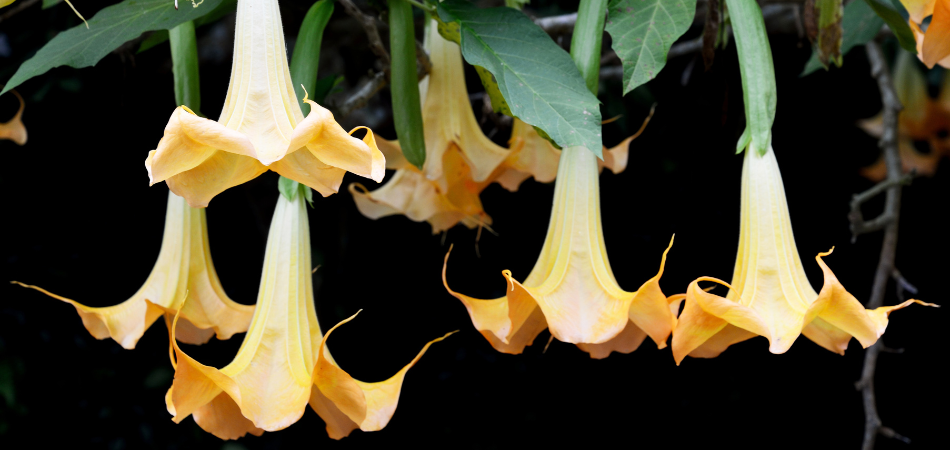
ZIMBABWEANS are being urged to remain vigilant following growing reports of a dangerous drug known as “devil’s breath” (pictured), a substance capable of stripping victims of free will, memory, and resistance.
In South Africa, authorities and security experts warn that the drug, formally called scopolamine, is increasingly being misused worldwide — and may already be circulating in Zimbabwe.
Medically, scopolamine is prescribed to treat motion sickness and nausea. But when weaponised by criminals, it earns its sinister nickname: “devil’s breath”. Extracted from plants such as Brugmansia — commonly found in Zimbabwe’s parks and gardens, it can be converted into a tasteless, odourless powder. Once ingested or inhaled, the drug renders victims compliant, confused and unable to resist instructions.
Reports from South America, particularly Colombia, link “devil’s breath” to thousands of crimes each year, from robberies to kidnappings.
Victims are often manipulated into emptying bank accounts or surrendering valuables before waking with no memory of what happened.
In Europe and the United Kingdom, concerns about “devil’s breath” are mounting. A British scientist was murdered in Colombia, allegedly after being poisoned with the drug.
In London, commuters have reported sudden disorientation after strangers waved newspapers or objects in their faces. In another case, Irish dancer Adrian Murphy was poisoned with scopolamine during a robbery, highlighting its lethal potential.
Medical experts describe its effects as “turning people into zombies”. Victims may appear awake but lack independent thought, willingly complying with instructions while experiencing hallucinations, rapid heartbeat and eventual memory loss.
- Zim headed for a political dead heat in 2023
- Record breaker Mpofu revisits difficult upbringing
- NBA Playoffs: Curry gets the Warriors to semis
- Tendo Electronics eyes Africa after TelOne deal
Keep Reading
Closer to home, criminals are already experimenting with “devil’s breath”. The ready availability of Brugmansia, known locally as ‘angel’s trumpet’, increases the risk. Victims in Harare have described waking up confused, robbed of their possessions and unable to recall key details.
Security analysts warn that the drug’s rapid disappearance from the bloodstream often within 12 hours — makes detection difficult. Ordinary police drug tests may fail to uncover its presence, leaving little evidence for investigations.
How it is used is, criminals deploy the drug in several ways:
l Spiking drinks in bars or social settings;
l Blowing powder into a victim’s face under the guise of casual contact; and
l Offering food or cigarettes laced with the substance.
Unlike violent robberies, this method leaves victims passive and compliant. “It is a criminal’s dream,” one UK police officer remarked. “There is no fight, no noise and the victim cannot remember enough to testify.”
How to stay safe
Experts advise Zimbabweans to remain cautious, especially in nightlife venues, public transport and unfamiliar gatherings.
l Never leave drinks unattended.
l Refuse food, cigarettes, or substances from strangers.
l Stay in groups, particularly at night.
l Be alert if someone tries to wave paper, perfume, or powder in your face.
l Seek medical help immediately if you feel sudden confusion, dizziness, or drowsiness.
l Report suspicious incidents promptly to the Zimbabwe Republic Police.
The spread of “devil’s breath” into Zimbabwe is a clear threat. While still underreported, its potential to disarm victims without violence could fuel a new wave of crime if left unchecked.
Public awareness is the strongest defence. Zimbabweans must learn the signs, protect themselves and their families, and demand greater vigilance from law enforcement agencies.
As history shows, societies that underestimate this drug do so at great cost. Let Zimbabwe not be caught unaware.
Will the “devil’s breath” be Zimbabwe's next drug problem.
Mutisi is a local commentator. — +263772278161.











